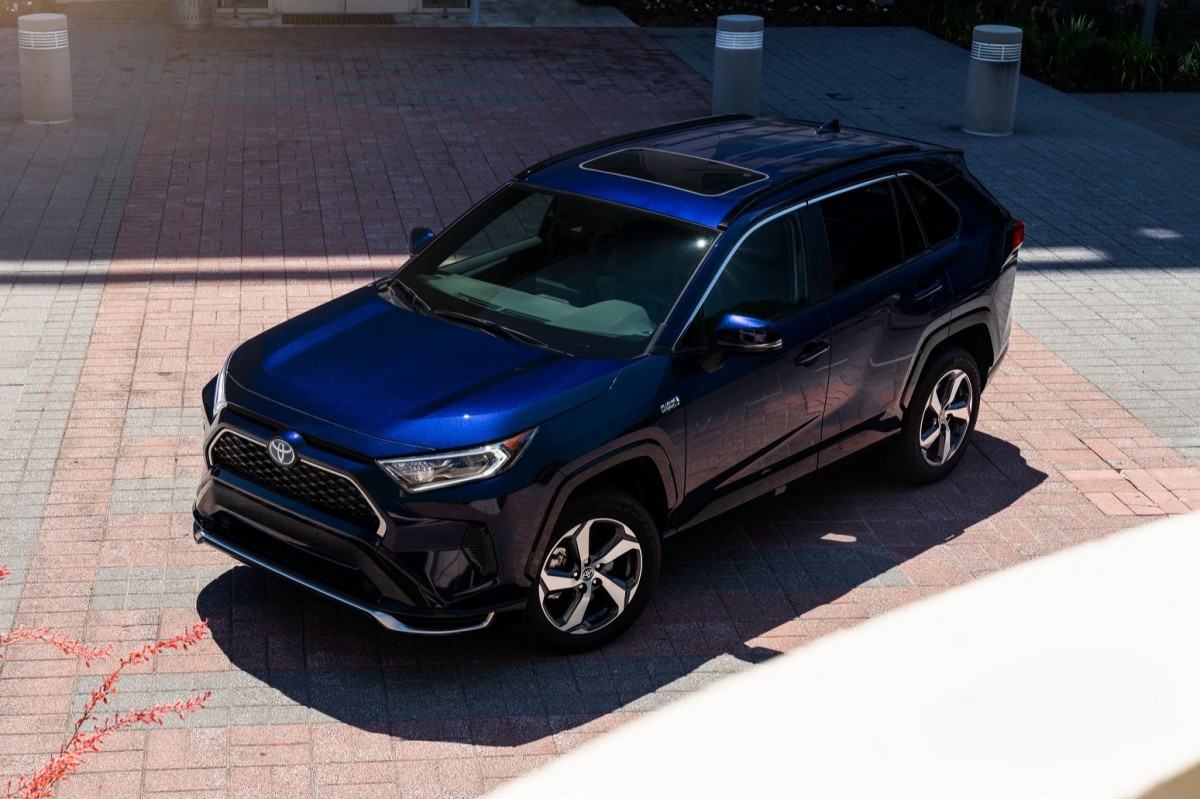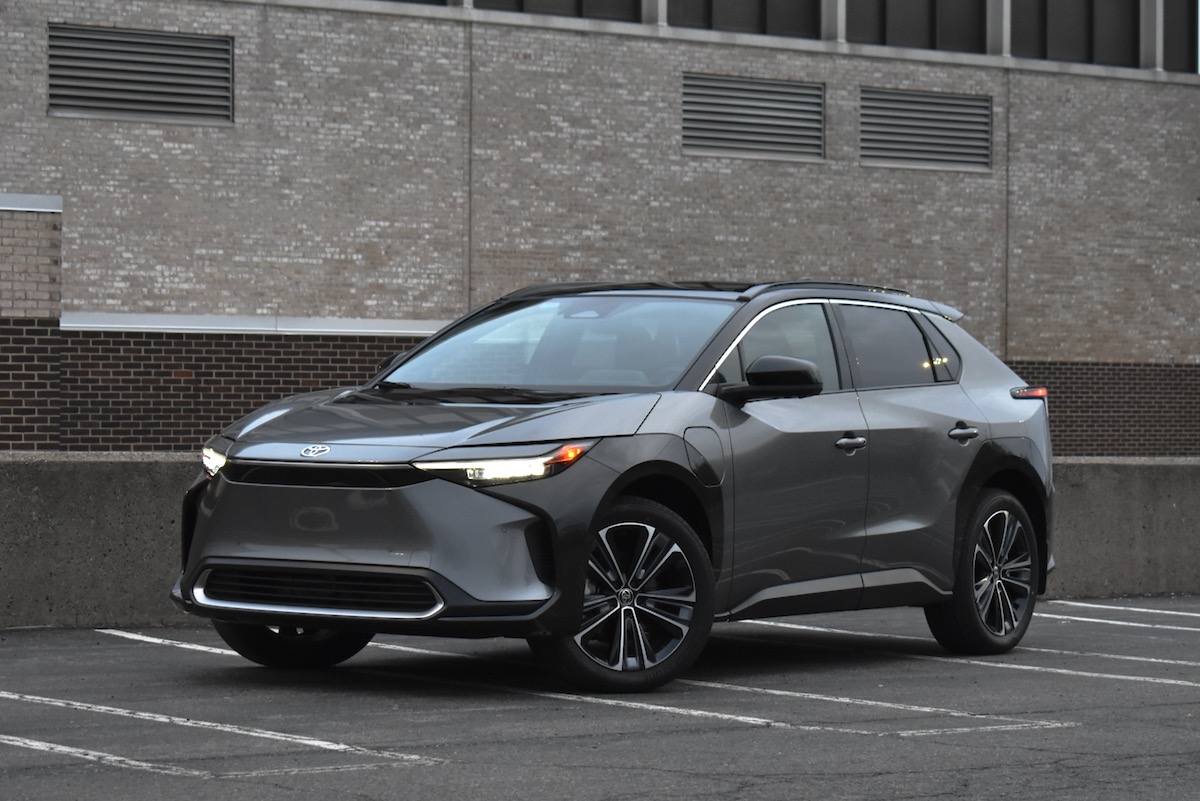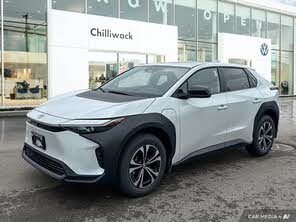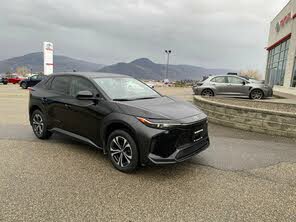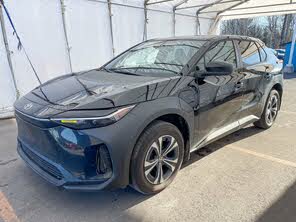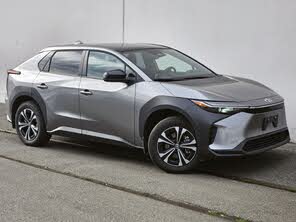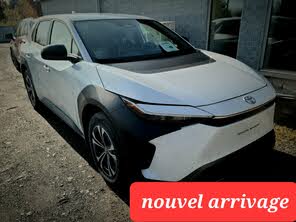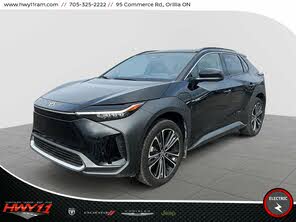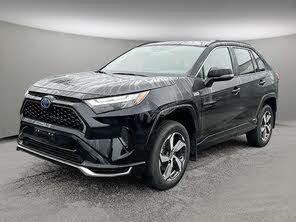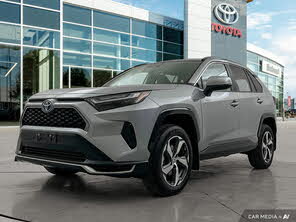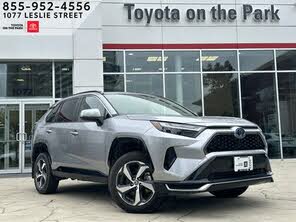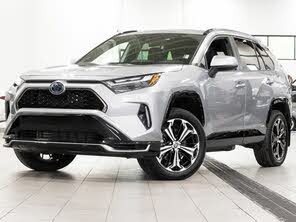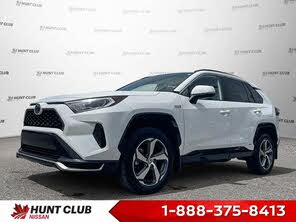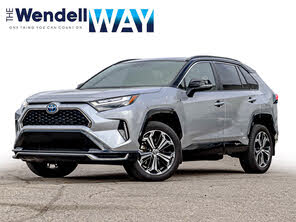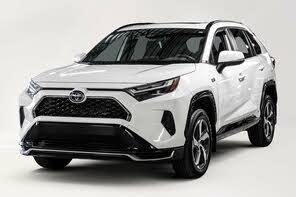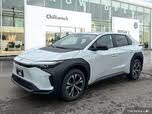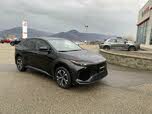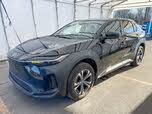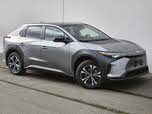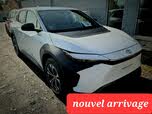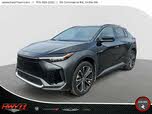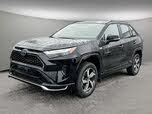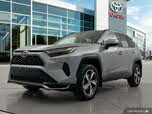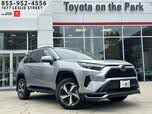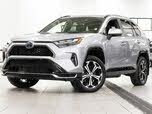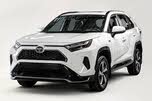Toyota bZ4X vs Toyota RAV4 Prime
Overview | |
Years produced2021-Present | Years produced2023-Present |
MSRP$40,300 | MSRP$42,000 |
Average price$52,034 | Average price |
Listings215 | Listings124 |
Ratings & Reviews | |
User Reviews | User Reviews |
Expert reviews8.2 out of 10 | Expert reviews6.3 out of 10 |
Pros
| Pros
|
Reviews SummaryPlug-in hybrid vehicles (PHEVs) are perfect transition models for people who want to try an electric vehicle but are not ready to completely give up the convenience of a gasoline engine. Enter the 2022 Toyota RAV4 Prime, a PHEV with an estimated 68 kilometres of electric range and a total estimate of more than 900 kilometres of travel between stops for electricity or gasoline. The RAV4 Prime arrived for the 2021 model year and there are no major changes for 2022. | |
Reviews SummaryToyota is not known for battery-electric vehicles. Aside from the RAV4 EV models built to satisfy California regulations, Japan’s largest automaker’s quest to reduce emissions has mostly focused on hybrids like the Prius. So, the 2023 Toyota bZ4X is a major shift for the firm. The bZ4X is Toyota’s first electric car for the North American market aimed at volume sales—and it won’t be the last. The “bZ” prefix stands for “Beyond Zero,” the name Toyota is using for a family of planned electric models. For now, the bZ4X enters a crowded market of small electric crossover SUVs, already populated with a long list of entries like the Hyundai Ioniq 5, Ford Mustang Mach-E, Nissan Ariya, and Volkswagen ID.4, among others. When it comes to configurations, Toyota keeps things simple. In Canada, buyers can choose between L, LE, and XLE trim levels, and single-motor front-wheel drive (FWD) or dual-motor all-wheel drive (AWD) powertrains. This bZ4X review is based on our experience with the U.S. equivalent of an XLE AWD model with the Technology package. | |
No video found | No video found |
Popular Features & Specs | |
Engine2.5L 302 hp I4 Hybrid | Engine201 hp Electric |
Drive TrainAWD | Drive TrainFWD |
Seating Capacity5 | Seating Capacity5 |
EV Battery Capacity18.1 kWh | EV Battery Capacity71.4 kWh |
MPG City105 | MPG City127 |
MPG Highway84 | MPG Highway107 |
Battery Charge Time (120V)12 hours | Battery Charge Time (120V) |
Battery Charge Time (240V)4.5 hours | Battery Charge Time (240V)9 hours |
Engine | |
Engine Name2.5L 302 hp I4 Hybrid | Engine Name201 hp Electric |
Battery Charge Time (120V)12 hours | Battery Charge Time (120V) |
Battery Charge Time (240V)4.5 hours | Battery Charge Time (240V)9 hours |
DrivetrainAWD | DrivetrainFWD |
Fuel Economy | |
EV Battery Capacity18.1 kWh | EV Battery Capacity71.4 kWh |
MPG City105 | MPG City127 |
MPG Highway84 | MPG Highway107 |
Interior | |
Seating Capacity5 | Seating Capacity5 |
Key Features | |
Navigation System | Navigation SystemStandard |
Sunroof/Moonroof | Sunroof/MoonroofStandard |
Safety | |
Front Crash Overall | Front Crash Overall5 |
Side Crash Overall | Side Crash Overall5 |
Dimensions & Capacity | |
Cargo Space33.5 cu ft | Cargo Space27.7 cu ft |
Curb Weight4235 lbs | Curb Weight4266 lbs |
Height67.0 in | Height65.0 in |
Length180.9 in | Length184.6 in |
Width73.0 in | Width73.2 in |
Wheelbase105.9 in | Wheelbase112.2 in |
Maximum Payload1295 lbs | Maximum Payload1169 lbs |
Number of doors4 | Number of doors4 |
Maximum Towing Capacity2500 lbs | Maximum Towing Capacity |
Overview | ||
Years produced | 2021-Present | 2023-Present |
MSRP | $40,300 | $42,000 |
Average price | $52,034 | |
Listings | ||
Ratings & Reviews | ||
User reviews | 4.3 | 4.0 |
Expert reviews | 8.2 out of 10Read full review | 6.3 out of 10Read full review |
Pros & cons | Pros
| Pros
|
Summary | Plug-in hybrid vehicles (PHEVs) are perfect transition models for people who want to try an electric vehicle but are not ready to completely give up the convenience of a gasoline engine. Enter the 2022 Toyota RAV4 Prime, a PHEV with an estimated 68 kilometres of electric range and a total estimate of more than 900 kilometres of travel between stops for electricity or gasoline. The RAV4 Prime arrived for the 2021 model year and there are no major changes for 2022. | Toyota is not known for battery-electric vehicles. Aside from the RAV4 EV models built to satisfy California regulations, Japan’s largest automaker’s quest to reduce emissions has mostly focused on hybrids like the Prius. So, the 2023 Toyota bZ4X is a major shift for the firm. The bZ4X is Toyota’s first electric car for the North American market aimed at volume sales—and it won’t be the last. The “bZ” prefix stands for “Beyond Zero,” the name Toyota is using for a family of planned electric models. For now, the bZ4X enters a crowded market of small electric crossover SUVs, already populated with a long list of entries like the Hyundai Ioniq 5, Ford Mustang Mach-E, Nissan Ariya, and Volkswagen ID.4, among others. When it comes to configurations, Toyota keeps things simple. In Canada, buyers can choose between L, LE, and XLE trim levels, and single-motor front-wheel drive (FWD) or dual-motor all-wheel drive (AWD) powertrains. This bZ4X review is based on our experience with the U.S. equivalent of an XLE AWD model with the Technology package. |
Video | No video found | No video found |
Popular Features & Specs | ||
Engine | 2.5L 302 hp I4 Hybrid | 201 hp Electric |
Drive Train | AWD | FWD |
Seating Capacity | 5 | 5 |
EV Battery Capacity | 18.1 kWh | 71.4 kWh |
MPG City | 105 | 127 |
MPG Highway | 84 | 107 |
Battery Charge Time (120V) | 12 hours | |
Battery Charge Time (240V) | 4.5 hours | 9 hours |
Engine | ||
Engine Name | 2.5L 302 hp I4 Hybrid | 201 hp Electric |
Battery Charge Time (120V) | 12 hours | |
Battery Charge Time (240V) | 4.5 hours | 9 hours |
Drivetrain | AWD | FWD |
Fuel Economy | ||
EV Battery Capacity | 18.1 kWh | 71.4 kWh |
MPG City | 105 | 127 |
MPG Highway | 84 | 107 |
Interior | ||
Seating Capacity | 5 | 5 |
Key Features | ||
Navigation System | Standard | |
Sunroof/Moonroof | Standard | |
Safety | ||
Front Crash Overall | 5 | |
Side Crash Overall | 5 | |
Dimensions & Capacity | ||
Cargo Space | 33.5 cu ft | 27.7 cu ft |
Curb Weight | 4235 lbs | 4266 lbs |
Height | 67.0 in | 65.0 in |
Length | 180.9 in | 184.6 in |
Width | 73.0 in | 73.2 in |
Wheelbase | 105.9 in | 112.2 in |
Maximum Payload | 1295 lbs | 1169 lbs |
Number of doors | 4 | 4 |
Maximum Towing Capacity | 2500 lbs | |

By: CarGurus + AI
At CarGurus, our team of experienced automotive writers remain at the heart of our content operation, conducting hands-on car tests and writing insightful guides that are backed by years of industry experience. To complement this, we are harnessing AI to make our content offering more diverse and more helpful to shoppers than ever. To achieve this, our AI systems are based exclusively on CarGurus content, ratings and data, so that what we produce is both unique to CarGurus, and uniquely helpful to car shoppers.
